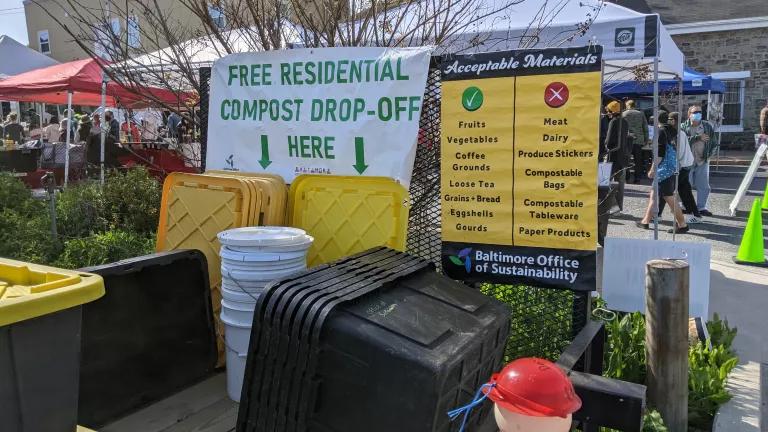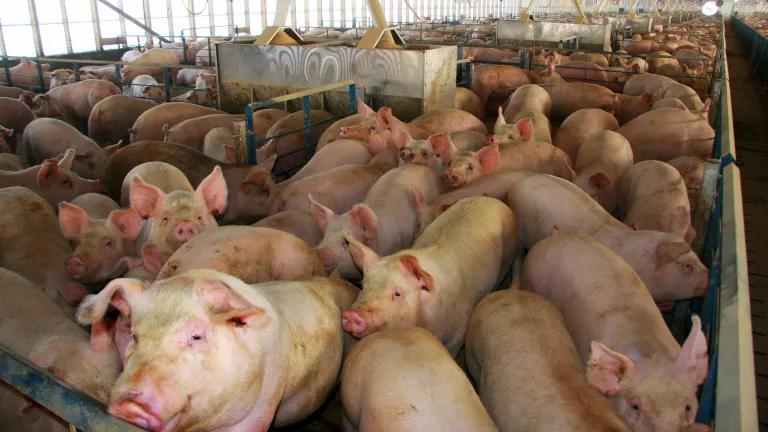Something in the North Carolina Farm Act Stinks
The bill contains sneaky giveaways to big agribusiness buried deep within the legislative text.

Manure and other factory farm waste being sprayed into the air and onto fields in a community in eastern North Carolina
How do you promote a “sweet potato brand” and hide information about millions and millions of gallons of feces from the general public all at once? It sounds like the beginning of a bad joke, but it’s no laughing matter. It is exactly what the North Carolina General Assembly is one step closer to accomplishing with the 2019 Farm Act.
North Carolina is home to approximately 2,300 industrial hog facilities that produce an estimated more than 60-million pounds of manure every day. Typically, these facilities use a lagoon and sprayfield system—they dump their hog manure into huge, open, festering cesspools, and instead of treating the manure, they spray it into the air and onto fields. Lagoons in the floodplains can overflow in severe storms, causing floods of feces to run into nearby rivers or pollute waterways that people use for drinking water. Spraying it in the air causes an overpowering odor, and more importantly, damages air and water quality, and leads to illness among nearby residents. In fact, a study by Duke University found that living close to a large-scale hog farm increased mortality rates among infants and even adults.
Why does this matter now?
The General Assembly is considering legislation called the Farm Act—thanks to industry influence on the legislature, the bill contains sneaky giveaways to big agribusiness buried deep within the legislative text. These provisions would hide vital information from the public and quietly gut an essential, decades-old law that prevents industrial hog facilities in the state from making big changes to their facilities if those changes don’t offer neighbors and the environment basic protections from dangerous wastes. As other critics have noted, “[w]hen industry writes its own regulations, ordinary people pay the price.”
The Farm Act would create a loophole in the longstanding law, which only allows industrial hog operations to expand or make major changes if basic protections for public health and the environment—called Environmentally Superior Technology—are also included. Since 2007, the law has instituted a moratorium on any new industrial hog operation that does not meet those public health and environmental standards. Similarly, any existing facility must install safeguards before making major changes.
The Farm Act would remove those critical requirements to allow Smithfield’s controversial plans to install biogas digesters at hog facilities to go forward without public scrutiny and breaks the promise to communities that industry would not modify these facilities without improving safety.
On August 21, the House approved a version of the bill with some new provisions about hemp. Now the Senate must consider the bill with those changes before it heads to the governor’s desk for signature or veto. Governor Cooper should not think twice—the Farm Act is a giveaway to special interests and an insult to North Carolinians.




